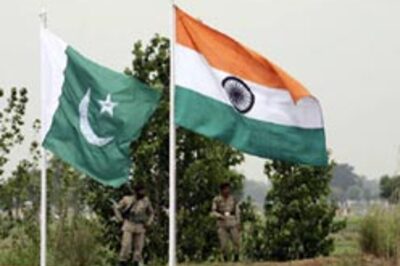
views
Aaftab Amin Poonawala said on Tuesday that his actions were “not deliberate” after he was arrested for allegedly murdering his live-in partner Shraddha Walkar and dismembering her body into 35 parts before burying them in Delhi and Haryana’s forested areas.
When Aaftab was brought before the Saket court in Delhi after his five days of police custody had expired on Tuesday, his attorney claimed that he killed his live-in partner “in the heat of the moment.” His police remand was granted a four-day extension by the court. The counsel for Aaftab stated, “Whatever happened, happened in the heat of the moment,” adding that his client had since “completely cooperated” with authorities.
Amid Aaftab’s submission, News18 explains what ‘heat of passion’ crime means in Indian law:
Heat of Passion
According to a report by Indian Kanoon, in Section 300 of the Indian Penal Code, which deals with murder, there exists Exception 4, which states that ‘Culpable homicide is not murder if it is committed without premeditation in a sudden fight in the heat of passion upon a sudden quarrel and without the offender having taken undue advantage or acted in a cruel or unusual manner. It is immaterial in such cases which party offers the provocation or commits the first assault.’
Difference Between Culpable Homicide and Murder
“All murders are culpable homicide, but all culpable homicides are not murder.”
While laws stating the difference between the terms differ in countries, the primary distinction between culpable homicide and murder is that the former refers to an act that results in a person’s death but is deemed not to constitute murder. Murder happens when a person or group murders another with the intent to end the latter’s life.
Section 299 and Section 300 of Indian Penal Code deal with murder.
A report by Legal Services India states that the word Murder comes from the Germanic word morth, which literally means hidden slaying. “A murder occurs when one person is slain by another or a group of people with the premeditated aim of ending the former’s life. A crime is not considered murder unless it contains an act that qualifies as culpable homicide under the IPC definition. All killings are culpable, but not all murders are,” the report states.
The report adds that culpable homicide is defined as causing death by doing anything with the goal of causing death or inflicting physical damage that is likely to cause death, or knowing that he is likely to cause death by doing something like that. It is classified into two types:
-Culpable Homicide amounting to Murder
-Culpable Homicide does not amount to Murder.
The report further explains that if a person is killed cold-bloodedly or with premeditation, it is considered murder since the intent to kill is high and not motivated by wrath or provocation. Culpable Homicide, on the other hand, it states, is defined as a death that occurs without prior preparation, in an unplanned conflict, or in an unplanned outburst of rage as a result of someone’s provocation or instigation. As a result, determining whether the act was culpable homicide or murder is a matter of fact.
“The purpose is the difference between murder and culpable homicide. The offense is considered to be committed under Section 300 of the IPC if the intention is present. If there is no intent, the offense is prosecuted under Section 304 of the IPC,” states the report.
What Courts Have Said
In State of A.P. v. R. Punnayya,, Sarkaria J., the court stated the contrast between the two: “In the framework of the Penal Code, ‘culpable homicide is genus and murder is specie.” All’murders’ are ‘culpable homicides,’ but not the other way around. ‘Culpable homicide’ without special features of murder’ is a culpable homicide that does not amount to murder.
In Reg. v. Govinda, the accused forced his wife to the ground while keeping a knee on her breast and delivered two to three strikes to the face with his clenched fist. This action caused blood extraversion on her brain, which led to the wife’s death. It was ruled that the bodily harm was not severe enough to bring about death in the natural world, and the act was not performed with the intention of doing so. The accused was not accused of murder but rather of culpable homicide.
In a recent ruling, the Bombay High Court upheld the life sentence of a truck cleaner who killed a man in Mumbai in 2011, and rejected his plea seeking reduction of the offence from Section 302 (murder) to Section 304 Part-II (culpable homicide not amounting to murder) of the IPC.
The bench said that if the murder was not in the heat of passion, but much after an argument that had taken place between two people, then it cannot be culpable homicide not amounting to murder, but murder itself, a report by India Today stated.
Read all the Latest Explainers here


















Comments
0 comment